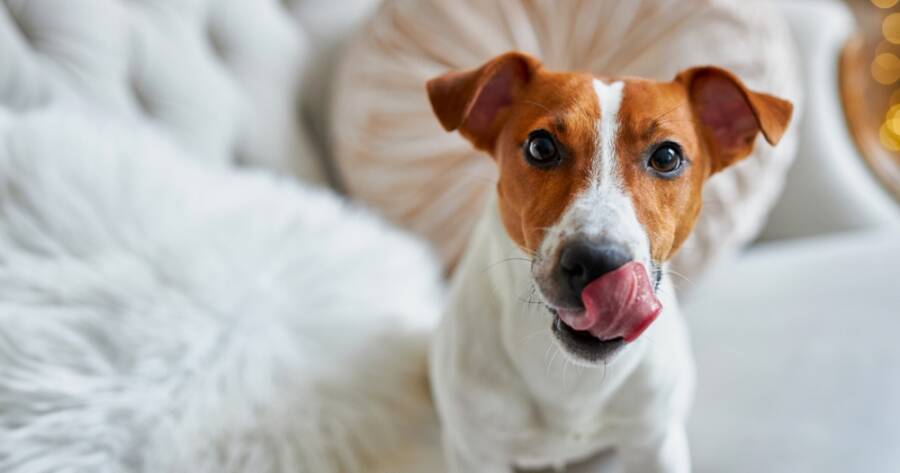Sharing food with your dog might seem harmless, but some human foods can be toxic and even life-threatening to them. While certain ingredients cause mild discomfort, others can lead to organ failure, seizures, or fatal poisoning. Knowing which foods to avoid is essential for keeping your pet safe. Understanding these dangers helps prevent accidental poisoning and ensures your furry friend stays healthy, happy, and out of harm’s way.
Chocolate
Chocolate is one of the most well-known toxic foods for dogs. It contains theobromine and caffeine, both of which are harmful to a dog’s nervous system and heart. Dark chocolate and baking chocolate have the highest concentrations of theobromine, making them especially dangerous. Even small amounts can cause vomiting, diarrhea, rapid heart rate, tremors, and seizures.
In severe cases, chocolate poisoning can be fatal. If your dog accidentally eats chocolate, contact a veterinarian immediately. Symptoms may take a few hours to appear, so acting fast is crucial. Keeping chocolate products out of reach and educating family members about the risks can help prevent accidental poisoning and keep your pup safe.
Grapes and Raisins
Grapes and raisins may seem like a harmless snack, but they can cause acute kidney failure in dogs. The exact toxic component remains unknown, but even small amounts can be life-threatening.
Symptoms of grape or raisin toxicity include vomiting, diarrhea, lethargy, loss of appetite, and increased thirst. In severe cases, dogs can experience kidney shutdown within days, which can be fatal without immediate veterinary care.
Since the toxic reaction varies between dogs, it’s best to avoid giving them any grapes or raisins, including foods that contain them, such as trail mix, cereals, and baked goods. If ingestion occurs, prompt medical attention can significantly improve the chances of recovery.
Onions and Garlic
Onions, garlic, leeks, and chives all belong to the Allium family, which is toxic to dogs. These ingredients can damage red blood cells, leading to anemia, weakness, and organ failure in severe cases. Symptoms may not appear immediately but can include lethargy, pale gums, weakness, vomiting, and dark-colored urine.
Both raw and cooked onions and garlic are dangerous, as are onion and garlic powders found in soups, sauces, and seasoning blends. Even small amounts consumed over time can have cumulative toxic effects. If you suspect your dog has ingested any of these foods, it’s important to seek veterinary care as soon as possible to prevent serious health complications.
Xylitol
Xylitol is an artificial sweetener found in sugar-free gum, candy, baked goods, peanut butter, and even some medications. While harmless to humans, xylitol is extremely toxic to dogs, as it causes a rapid release of insulin, leading to dangerous drops in blood sugar (hypoglycemia). Symptoms can appear within minutes and include vomiting, weakness, tremors, seizures, and even liver failure.
Even small amounts can be fatal, so if your dog ingests anything containing xylitol, seek emergency veterinary care immediately. Always check ingredient labels carefully and avoid giving your dog any food or treat that contains artificial sweeteners.
Avocados
While avocados are healthy for humans, they pose a risk to dogs due to persin, a fungicidal toxin found in the fruit, pit, and leaves. Persin can cause vomiting, diarrhea, and breathing difficulties in dogs.
Additionally, the large avocado pit is a choking hazard and can cause a dangerous blockage if swallowed. While some dogs may tolerate small amounts of avocado flesh, it’s best to err on the side of caution and avoid it altogether. Instead, opt for dog-friendly fruits like blueberries, apples (without seeds), or bananas as safer alternatives for a healthy treat.
Alcohol and Caffeinated Drinks
Alcohol and caffeine can have severe toxic effects on dogs, even in small amounts. Alcohol, found in beer, wine, liquor, and fermented foods, can cause vomiting, disorientation, tremors, breathing problems, and even coma. Caffeinated drinks like coffee, tea, soda, and energy drinks and coffee grounds can lead to rapid heart rate, hyperactivity, restlessness, and seizures.
Dogs are far more sensitive to these substances than humans, and ingestion can quickly become life-threatening. If your dog accidentally consumes alcohol or caffeine, seek veterinary care immediately. Keeping these beverages and related products out of reach can prevent dangerous and unnecessary health risks.
Keeping Your Dog Safe Starts with Smart Choices
Your dog depends on you to make safe and healthy food choices for them. While it may be tempting to share your favorite snacks, certain human foods can pose serious health risks. By avoiding toxic ingredients like chocolate, grapes, onions, and xylitol, you can prevent dangerous reactions and keep your pup happy and healthy.
If your dog ever eats something questionable, contact your veterinarian right away. A little extra caution goes a long way in ensuring your furry friend enjoys a long, active, and trouble-free life.

